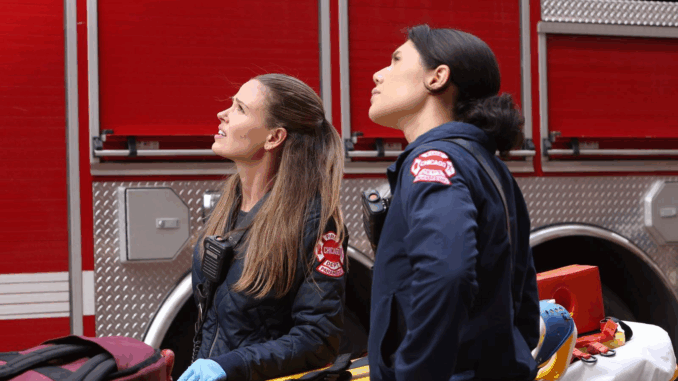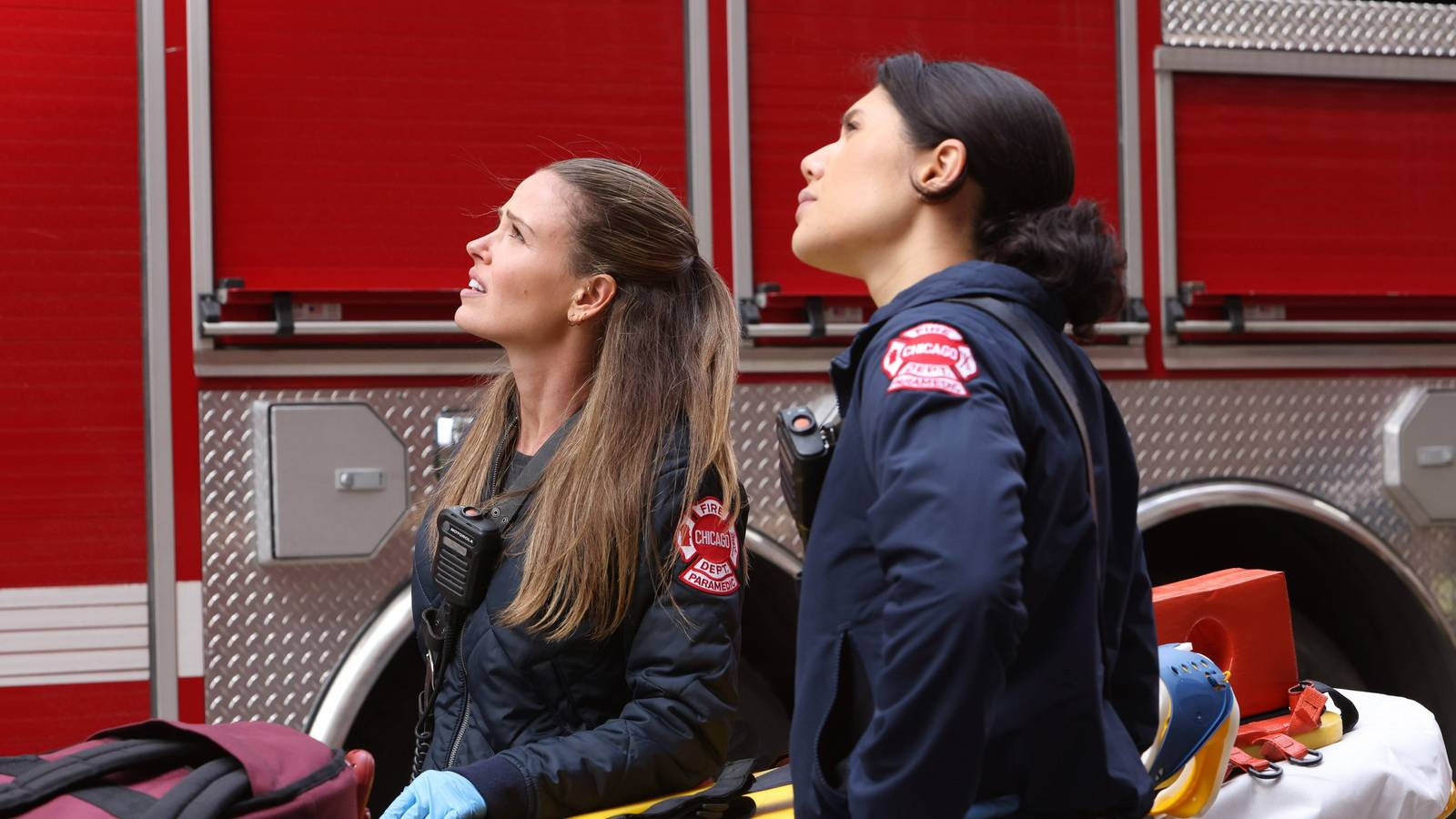
An interview with one of the stars of Chicago Fire humorously reveals a major inaccuracy often called out by the show’s consultants, and it speaks to why TV procedurals are such a comforting form of entertainment. In fact, this inaccuracy often plays a role in Chicago Fire’s best episodes, even if it’s less explicitly noticeable than the show’s blazing catastrophes.
Procedural dramas already demand a certain built-in suspension of disbelief. Resolving NCIS’ forensic inaccuracies would require month-long episodes with dozens of extra cast. And while Chicago Fire utilizes professional consultants to ensure accuracy where possible, it’s actually a particular break from realism that makes first responder dramas like Fire and Med even more emotionally compelling than One Chicago’s complex romances.
Chicago Fire’s Jocelyn Hudon Reveals She’s Frequently Called Out For Playing Up The Drama
The Show’s Paramedic Consultant Makes A Really Great Point
As part of NBC’s hype coverage for Chicago Fire season 14 and the rest of their upcoming slate of premieres, Access Hollywood met with One Chicago stars to learn about the real-life knowledge they’ve accrued from first responders who work on their shows. Chicago Fire’s Jocelyn Hudon revealed she’s specifically been critiqued for overreacting to the show’s emergency medical situations:
“Michele [Martinez], our paramedic consultant, too. When I first got here, every emergency, I was like ‘Ahhhh!’ And she was like, ‘You’ve seen this a million times.’”
Using one of Fire’s more over-the-top competitors as an example, it’s hard to imagine first responders answering 9-1-1’s most ridiculous emergencies with a straight face. In reality, however, maintaining a reasonable emotional distance helps responders stay objective and keep a steady pace. It doesn’t mean they lack compassion, but they can’t let that stand in the way of their duties.
If you’re swallowed by a whale or engulfed by a tornado of bees, you want the people saving you to work with as few distractions as possible. Procedural dramas would be less immersive if this were portrayed realistically, but there’s an even more uplifting reason it’s good for network emergency shows like Chicago Fire to play up characters’ emotional responses.
Why TV Procedurals Like Chicago Fire Being Inaccurately Dramatic Is Actually Wonderful
It’s Easier To Empathize With The Victims Than The Heroes
While a certain level of detachment is beneficial, it can be jarring for those seeing first responders in action for the first time. Comments on videos of firefighters have sometimes criticized their lack of visible urgency, despite the importance of a focused pace. Having once watched paramedics remove a drowned body from my house, the atmosphere was unexpectedly laid-back.
If you’re gruesomely injured and rushed to the hospital, Chicago Fire’s Carver will help take care of your dog. Having already caught the bad guy, Ruzek might not realistically need to check in with social services at the end of Chicago PD’s 2-part “Zoe” arc, but seeing Zoe finally loved and cared for is the real triumph of the story.
We know intuitively a real cop might not spend a full shift finding beds for one homeless family like The Rookie’s John Nolan, nor would Stellaride take such personal interest in the ten-year-old house fire at the heart of Chicago Fire’s Natalie Evans storyline. Trusting that first responders feel compassion at a human level isn’t the same as seeing it.
None of this should be taken to imply real first responders never go above and beyond for those they serve. They do that just by showing up. But TV procedurals like Chicago Fire translating emergency workers’ empathy into tangible responses comforts viewers that we won’t suffer alone in our darkest moments of crisis. And that has value beyond mere entertainment.
